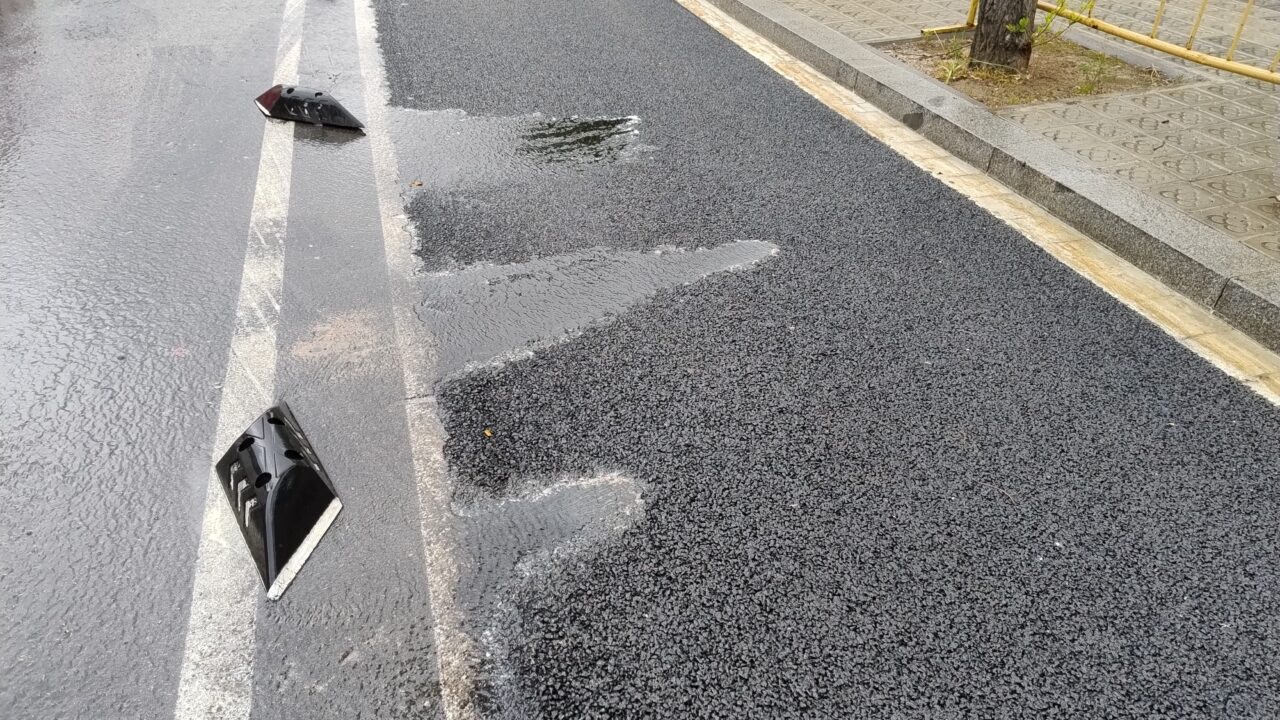Innovative Permeable Pavements: A Sustainable Solution for Urban Roads
12/09/2024 | News

The MULTICLIMACT project is leading the way in urban sustainability with permeable pavements. This cutting-edge pilot project aims to manage rainwater runoff while enhancing cyclist safety and reducing flood risks.
By Aurea Plumed Gomez & Marcos Sanz-Ramos (Departament de Coordinació i Innovació, Municipality of Barcelona)
Urban areas face increasing challenges due to climate change, including rising rainfall and the subsequent risk of flooding. To address these issues, the MULTICLIMACT project is pioneering the use of permeable pavements as a sustainable solution in Barcelona, one of four pilot cities across Europe. This innovative approach focuses on reducing the strain on urban drainage systems while promoting a safer environment for cyclists.
Permeable pavements, like the one seen in the image taken on 14 May 2024, are made from highly porous materials that allow water to pass through at rates far higher than natural terrain. This design ensures that rainwater is absorbed efficiently, reducing surface runoff and easing the burden on traditional sewer systems. The photo illustrates the bike lane constructed using this technology, still showing the early signs of its effectiveness a day after the new asphalt was laid.
The pilot test, a key feature of the MULTICLIMACT initiative, includes a dedicated bike lane built with permeable pavement, fully equipped with sensors to monitor rainfall, pressure, temperature, and water quality. This comprehensive approach allows researchers to study the full range of hydrometeorological processes, from rainfall and runoff to changes in water quality and flow patterns. The ultimate goal is to optimise stormwater management, thereby reducing flood risks and improving the overall safety of urban cycling routes.
This new surface captures rainwater and channels it away from areas of potential hazard. By reducing surface water, especially after heavy rainfall, the risk of cyclists skidding or encountering large puddles is minimised. These pavements also have a positive environmental impact, as they help filter pollutants from runoff before they reach larger water systems.
The MULTICLIMACT project is a comprehensive effort to develop sustainable solutions for urban infrastructure, and this permeable pavement pilot is a prime example of its potential. With the ability to monitor a range of environmental factors, from temperature to water quality, it offers a holistic approach to managing urban runoff and improving safety for all road users.
Author: Àurea Plumed Gómez

